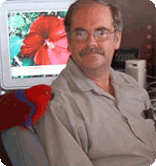Clarity on Some Nutritional Issue

My Question: Hi There, I am trying to get some clarity on some nutrition issues.
1) I know well that a lot of sunflower is not good, but there seems to be a big move totally against sunflower.(my birds get about 10-15% of their diet as sunflower.) Is this move totally against sunflower just the “in” thing, or is there good research behind it?
2) Vegetables are seen as more beneficial than fruit, but i have never seen a wild parrot or a photo of one eating vegetables. Fruit, grains, nuts, blossoms and bark, yes, but never vegetables. why are vegetables preferred for captive birds, is it to compensate for foods missing in a captive diet, or do captive birds just not need the quick energy boost fruit provides as much as wild birds, or is it something else?
3) What is your opinion on palm oil? (apart from the fact that parrot habitat is destroyed to create space for the palm plantations.) I do feed pellets, but I don’t like diets of pellets only.
Thanks.
Bruce

Hello Bruce, thanks for your questions.
First off I think we need to understand that we can't feed a captive parrot in the same manner that a parrot would feed in the wild. Captive parrots don't have the same caloric requirements because they don't forage long distances for food and are really, in the best of circumstances, sedate as compared to free flying parrots. Moreover we need to consider that there are vast differences in the foods that wild parrots eat, generally determined by their geographical location, and we simply don't have access to many of those foods. We need to consider that many captive parrots don't have the same access to natural light and fresh air, which plays into their dietary requirements, as compared to their wild counterparts. That brings me to the very important point that there are big differences in the nutritional requirements of a parrot and the dietary requirements of an individual captive parrot. Husbandry practices play a big role in what your parrot needs to eat to reach its optimal nutritional health, which is based on much more than what species of parrot it is. You need to work your particular husbandry practices into the equation. Even the average temperature in a given situation can result in different dietary requirements of a captive parrot. Parrots kept in cool places will need more fat in their diets than parrots kept in a warmer environment. As temperatures fall a parrot’s metabolism speeds up to burn more fat to keep it warm. As temperatures rise a parrot’s metabolism slows down because it doesn’t need to burn as much fat to stay warm. As a result, parrots kept in cooler environments will generally eat more food and in doing so also take in more nutrient because of the higher intake. Parrots kept in a warmer environment will not eat as much and may not be taking in enough nutrient if the diet is not nutrient concentrated. For example, a Moluccan Cockatoo kept indoors in New York will have notably different dietary requirements than a Moluccan Cockatoo kept in an outdoor aviary in Florida in order to reach the same level of nutritional health. These two circumstances present dramatic differences in exposure to natural light, fresh air, and average temperature, which individually or collectively will vary the dietary needs of a captive parrot.
I am sure we could do a better job at looking at some of their natural foods and trying to emulate the amino acid and fatty acid profiles, and other nutrient levels contained in those foods, yet keep the overall percentage of fat to a minimum as required by most captive parrots. When you do think about the expansive differences in diets wild parrots eat around the world it really is a wonder that we have come as far as we have in such a short time with minimal research as compared to commercial livestock and poultry. The best an individual can do is try to provide a base diet to meet known nutrient requirements for parrots in general, while keeping in mind the parameters and/or limitations of their husbandry practices, and then educate themselves on what their particular parrot needs that's different.
The push against sunflower seed has been around for decades, and I think there are a lot of motives. I am sure the safflower industry would rather see you feeding your birds safflower. I also think the pelleted diet industry would rather see you feeding your birds pellets rather than any kind of seed.
There are a few of things I believe do have relevance in the argument. One is the high fat content of sunflower seed. On average a dried sunflower seed is about 36% fat. Another issue is that sunflower seed, as well as many of the other seed in parrot seed mixes and peanuts, go rancid rapidly and can be a perfect medium for growing aspergillus, which is a species of mold. Rancidity can result in a whole list of issues that may or may not fall under the label of aflatoxins. Aflatoxins are mycotoxins or toxic chemical byproducts of molds. Alfatoxins are amoung the most carcinogenic substances known to man. Aspergillus is ubiquitous, but can infect parrots, especially a compromised parrot. Aspergillus infections are generally secondary to other health, dietary, or husbandry issues. Aspergillus is extremely difficult to treat even when caught early. Last but not least, in order to try and give our captive parrots the broadest spectrum of fatty acids as possible the fat in their diets needs to come from a variety of foods which should have different fatty acid profiles. If we are using seed mixes, even in the smallest amounts, the fatty acid profile is most likely very limited. A variety of nuts can provide a much better source of fat.
Referring back to points made in the first paragraph, vegetables in a captive parrot's diet provide a much broader spectrum of nutrients than fruits. Fruits are mainly water and sugar with some vitamins and minerals, vitamin C being one most likely found. Since healthy parrots produce vitamin C in their gut supplementation is generally not necessary; although, may be beneficial for young, growing, or compromised parrots. Personally, I don't think berries get enough inclusion in the captive parrot diet, as they are packed with nutrients and antioxidants.
Palm oils are one of those foods we should look at that can provide some of the complex fatty acid profiles wild parrots consume in order to better feed our captive parrots. You need to be very careful of the source though. All fats are prone to rancidity if not properly stored. Fatty acids are very heat sensitive, so the manner in which the palm oil is stored and in which your parrot eats it plays into the equation. Using palm oils in cooked bird breads and muffins most likely does a lot of damage to the nutrients you are trying to provide in using them in the first place. I am fortunate enough to have access to fresh palm nuts, and I think it is the best way to get palm oil into your parrot. Another observation is that you generally see wild parrots eating palm fruit when it's still green, prior to ripening, and the nutritional make up may be significantly different than the completely ripe palm fruit currently found on the market for parrot consumption and used to make most of the palm oils readily available today.

































